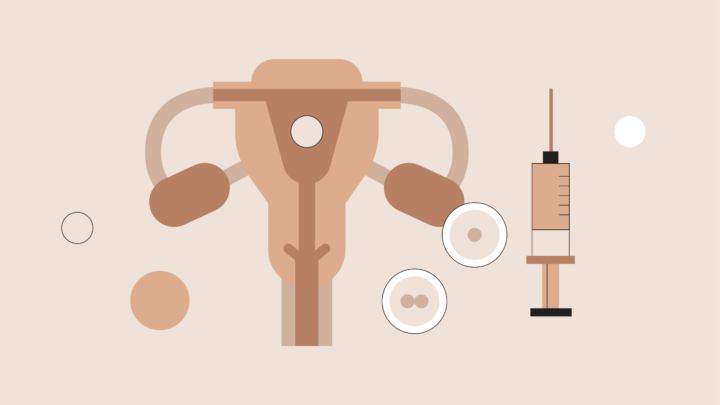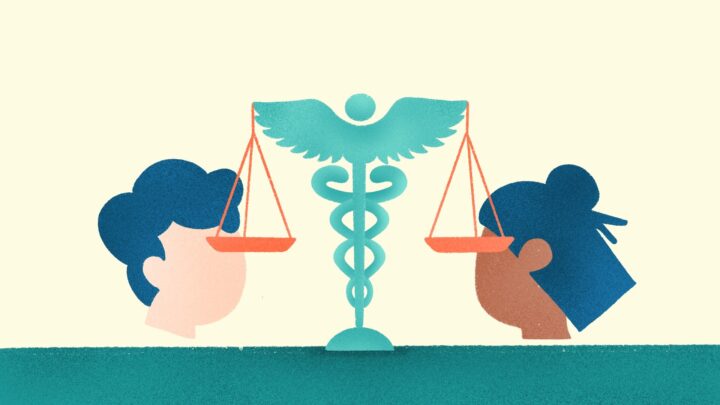
The landscape of physician employment has undergone a seismic shift. In the early 1980s, about 75% of U.S. doctors operated independently, but today, that same percentage works within large hospital systems or corporate entities. Some worry this trend may impact care quality, fueling a recent push among doctors to consider unionizing.1
Amidst an industry grappling with demanding work environments and rising corporate influence, physician interest in a healthcare worker’s union is notable: according to a recent Sermo poll, 46% of doctors are aware and interested in unionization, with 67% expressing support to some degree.2
This article examines physician perspectives on unionization, weighing the potential benefits, challenges, legal considerations, and impacts on the broader healthcare system.
Understanding physician unionization

What is physician unionization?
Physician unionization is when doctors collectively negotiate employment conditions. It’s akin to other healthcare unions but uniquely shaped by the profession’s specific complexities.
Some see physician unionization as essential and something that doctors are likely to excel at due to their academic skills. One Sermo member noted, “It takes many more years of training and experience to get docs to a level of expertise that couldn’t be filled with … replacements. Let’s not underestimate ourselves in this regard.3“
Others, however, question whether unionization is necessary or even beneficial. They caution that union influence could mirror the issues once blamed for the auto industry’s struggles.3
Potential benefits of unionization for physicians
1. Improved working conditions
Healthcare has seen a surge in physician burnout. Up to 75% of professionals report symptoms like depression, exhaustion, and sleep disorders, often due to long, irregular hours.4
Unionization could help mitigate these issues by advocating for reasonable workloads and improved safety standards. According to the PBS analysis, “Things have to be pretty bad when Doctors of osteopathic medicine try to organize because this has never remotely been a part of their professional culture.1”
With union support, 80% of surveyed physicians believe that unionization could improve working conditions.2 As staffing shortages and burnout worsen, some see unions as a viable solution, while others argue for a work-life balance outside union mandates. “We don’t need to unionize,” a Sermo member specializing in Physical Medicine stated, “just do a 9–5 type.3“
2. Enhanced negotiation power
Doctors possess specialized skills and training, making them harder to replace — a fact that strengthens union leverage in negotiating for better hours, pay and resources. “We’ve tremendous influence if we decide to use it,3” a General Surgery Sermo member remarked.
But as history shows, collective action in medicine isn’t always effective. Another General Surgery physician recounted, “The last time doctors were 70% united was against Medicare, and they failed.3”
3. Greater support for ethical decision-making

Unionization can empower physicians to uphold ethical standards, including patient advocacy and physician autonomy. This ethical commitment extends to broader issues like ensuring AI is used responsibly in medicine.
68% of physicians support unionized actions as ethical, provided they align with patient care and autonomy.2 For example, the National Nurses United (NNU) advocates for high ethical standards in AI, prompting physicians to consider similar frameworks.5
A Sermo member for Geriatric medicine remarked, “It’s important to ensure [AI] is used ethically and responsibly,5” and it should always be focused on the patient’s needs.
Potential challenges of unionization
1. Varied unionization support by specialty
Interest in unionization varies among specialties.
Emergency room physicians, often on the front lines of staffing shortages, might advocate more strongly for union support while others may feel differently.
For instance, a Physical Medicine & Rehabilitation physician on Sermo remarked, “We don’t need to unionize,3” emphasizing a preference for balancing work hours instead.
2. Strikes and ethical implications
While 68% of doctors view strikes as ethical, others worry about the impact on patient perception and care continuity.2 Strikes might disrupt patient care and create ethical dilemmas that many physicians feel uncomfortable with.
As one Sermo member commented, “Union/Strike will be a huge turn-off. No one will sympathize.3”
In contrast, others believe that a strike could be permissible but professionalism and patient care must remain the top priority. A Sermo member for General Surgery puts it, “strike or other action by a physicians’ organization would have to be taken as a last resort, and against others [rather] than patients. And, too, mindful of the cost of a failure of that action.3”
To see the latest information about what doctors think about physician unionization, check out the live poll with Sermo. If you’re not a member, sign up and then click on the link to go directly to the poll.
Legal considerations for physician unionization
Can a physician join a union?
Physician unionization also presents legal complexities. While 71% of doctors believe it’s legal for physicians to unionize, 23% prefer to defer to legal experts.2 As to the answer to the question, can physicians be unionized in the United States? Salaried and employed physicians who aren’t supervisors or independent contractors are legally able to unionize under the National Labor Relations Act (NLRA).6
Awareness is growing but obstacles remain. As one Sermo member for Internal Medicine noted, “Physicians have lost control of the healthcare system. We need to take control back. Who better than us knows what’s best for our patients?3“
Administrative and legal barriers

Unionization faces administrative and legal challenges, with restrictions differing by state and often limiting physicians’ ability to negotiate collectively.
Forming a union involves navigating federal and state-specific restrictions. The American Medical Association (AMA) has supported physicians’ rights to collective bargaining, particularly for those whose employment is subject to NLRA limitations.7
Only 26% of physicians report being approached about unionization,2 suggesting an outreach gap. “We need to take control back,3” as one Internal Medicine physician put it. However, the barriers are high with another member noting that caution is required when approaching collective bargaining in the healthcare sector.
Unionization and collective bargaining rights
While collective bargaining is one way to enhance physicians’ ability to negotiate, understanding specific protections is critical.
An Internal Medicine physician commented on Sermo, “If you don’t like unions, try and be a part of it and guarantee that the people we elect to represent us aren’t above us.3”
This perspective underscores the need for physicians to shape union goals in ways that align with laws, values and responsibilities.
How do labor unions affect healthcare? Working conditions and patient care

Concerns about patient care and continuity
One major concern about physician unionization is the risk of strikes or reduced access to care, which could compromise patient outcomes. Many physicians recognize an ethical duty to ensure patient care remains consistent, even amid union activities.
As highlighted in a Sermo discussion on healthcare law and ethics, physicians feel responsible for maintaining patient support. A family medicine physician on Sermo questioned the targets of a potential strike, asking, “If you went on strike, who’d it be against: the hospital, the government, or insurance companies? The patients would pay the most.3”
This statement emphasizes the ethical tension that union action could inadvertently impact those they serve.
Potential impact on patient care quality
Unionization could enhance care quality in high-stress environments, and collective bargaining could support balanced workloads, allowing physicians to focus more on each patient.8
Many physicians believe that unionization could improve patient outcomes through, “shared decision-making.9” Physician unionization offers promising benefits including improved working conditions, stronger negotiation power and support for ethical practices. Yet, challenges such as potential patient care disruptions and legal complexities remain.














